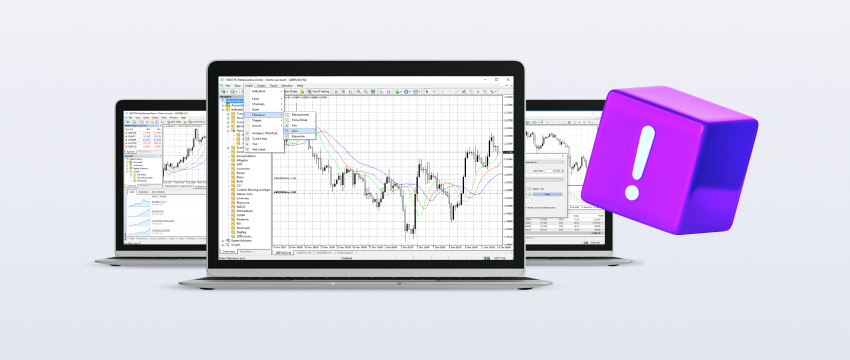Forex trading can be exciting and rewarding. So much so, in fact, that many traders feel confident. They start seeing some results. Then, they allow trading to consume most of their free time.
And this is one area of trading that’s often underexplored. When you take a trading course, it won’t tell you how to manage your time. Most traders have limited free hours. They must divide it between trading, daily tasks, and their regular jobs.
This can cause problems in forex trading, like burnout. It can also affect your daily life and relationships. Because of this, time management is crucial. It helps you stay calm when trading. It also keeps your mind healthy and balanced.
This article focuses on that exact topic. It explains how traders can balance forex with the rest of their lives. It also shows how finding that balance can make them better traders.

Being realistic with your schedule
The first piece of advice many traders receive is to make a schedule and stick to it. In the early stages, this often pertains to an educational schedule; learning for at least 15 minutes to a few hours per day.
This is a good piece of advice. When learning any skill, consistency is instrumental, and at the end of the day, trading is no different.
However, many people have strong motivations to trade. They want to test their skill, secure a potential revenue source, or simply find it exciting. As such, they may want to speed up the process by investing more time.
And while this, to some extent, does make sense, committing more than you can afford is counterproductive.
Burnout and Exhaustion in forex trading
The primary issue here is burnout. If you have three hours per day completely free, and you devote all of it to trading, you may see rapid improvement at first.
But over days, weeks, and months, it’s likely to start to wear on you. You may start feeling the mental strain of focusing solely on one thing, especially between a job, daily chores, and your social life.
In these cases, something has to suffer. Either a trader keeps their focus on the market and has other aspects of their life decline, or they gradually give up on trading.
The other significant issue is exhaustion. Let’s say you want to study for five hours each day.
Realistically, that tempo isn’t sustainable for most people. You may keep your focus for two or three, but then exhaustion sets in, and significantly reduces what you can do.
If you are ardent about continuing your routine, you’re likely wasting at least an hour or two out of the hypothetical five.
How to create a realistic routine in Forex?
Designing a personal Forex trading routine
Unfortunately, there’s no cookie-cutter way of creating an education, analysis, and trading routine.
There are too many variables, including the structure of one’s daily life and how far they’ve progressed in the trading world. However, a rule of thumb is to first realistically calculate the time you have for each day of the week.
For instance, someone with a job and family may only have an hour or two free on weekdays. Often, they’ll want at least some time to relax. On the weekend, however, they have more time and they can spend it on trading.
Here, it’s key to remember that, while it’s advisable to trade every day, you don’t have to. And it’s completely fine to go harder on some days than others.
Balancing Learning, Practice, and Rest
So, for someone who is particularly busy, they may use the weekend to learn new terms and concepts for two hours each day. Then, in the first half of the work week, they’ll revise and perhaps place a few short test trades on a demo account to make sure they have a practical understanding as well.
On Wednesday, they may take a rest, and on Thursday and Friday, they may research and get prepared for their next steps on the weekend.
Another important part of planning a routine is not to devote all of your free time to it. Traders most likely have other interests, and even if that isn’t the case, some time is needed to unwind. Be smart with your time, and plan around obligations, social life, and much-needed leisure.

Sticking to your forex trading routine
Making a routine is one thing, but sticking to it is another. Oftentimes, traders will either get carried away on a day they are feeling motivated or skip out entirely when they aren’t.
This creates an unbalanced experience where it’s difficult to progress steadily, and traders become prone to burnout or simply quitting.
So, the key here is to actually stick to what you’ve set. As explained earlier, the first part of this comes from an actually realistic routine. Once you set it, try it for a few weeks, and modify it once you’ve actually experienced it.
This revision process is key. As you progress as a trader, the optimal way to divvy your time should change. For instance, a complete beginner will spend all their time reading up on the markets. Then, they may split that time between learning and demo trading. Finally, they may add live trading to the mix as well.
As for the practical part of it, it’s much more personal. Some traders will learn with their morning coffee, and some will do it after supper. If you’re struggling to keep up a routine, alarms, timers, and reminders may help.
Resting and reflecting
The time you spend away from trading is just as important as the time you are actively involved. If you do your trading and education routine and then immediately go off and scroll TikTok for an hour, a lot of what you’ve learned is likely to slip away.
It’s important to take time to absorb what you’ve learned and experienced. For practical trading, this involves processes like reviewing your trading history or trading diary if you keep one. However, on a more basic level, it can just be taking a few minutes to recap what you’ve learned today in your head.
Similarly, if you go into your trading and education sessions tired, unfocused, or frustrated, a fruitful session is unlikely. This ties in with what we spoke about earlier – it’s unwise to devote all of your free time to trading.
Emotional trading is one of the most common mistakes traders make, and, as such, emotional regulation is key. A huge part of that comes before your trading session.
Everyone’s idea of rest is different, but finding a way to rebalance yourself before a trading session is key. Remember, forex is unpredictable and stressful, and you don’t want to be adding to that.
Conclusion
For most traders, it’s impossible to overstate the importance of balancing forex and the rest of their lives. It’s not much different than a work-life balance. Simply put, it’s needed to ensure that a person can feel content and fulfilled as a whole.
And on top of that personal effect, it’s also notable that this is likely to make trading results more consistent, discipline easier to maintain, and the overall experience more comfortable.
So, take the time to create and occasionally re-evaluate your plan, it may just be the difference you need to become a confident trader.
免责声明: This material is for general informational and educational purposes only and should not be considered investment advice or an investment recommendation. T4Trade is not responsible for any data provided by third parties referenced or hyperlinked in this communication.



